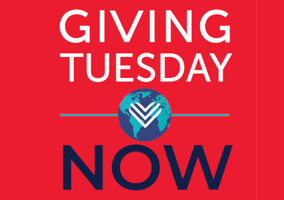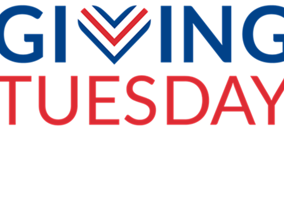Today is Giving Tuesday. Created in 2012, so now in its 10th year, it is seen by some as a counterbalance to the “Getting” of Black Friday. As its name suggests, this is a day about giving - time, money or simple gestures of kindness. Those behind Giving Tuesday claim that the event has inspired a global movement of generosity.
Here in the UK, we have a long history of generosity, way before Giving Tuesday. In the last thirty years alone, we have seen the rise of mass participation events like Live Aid, Comic and Sport Relief, Children in Need, the Great North Run, the London Marathon and countless local fundraising events that take place every weekend.
Thousands of us volunteer for different causes and charities all the time. Captain Sir Tom Moore was perhaps the epitome of this spirit, proving that fundraising and giving to charity are part of the national psyche. That said, CAF’s UK Giving Report 2021 is showing an overall decline in giving over the past five years, save in the pandemic months of January to June 2020.
We were dismayed to see the headlines of The Good Agency survey Giving Britain published on 11 November. This showed that 53% of Britons think charities have lost their humanity and become too corporate and that 51% think donating to charity is a bottomless pit. We do not recognise this sentiment.
In our organisations, our partners, and the charities we support all provide vital help for children, people and families going through tough times. There are thousands of other charities out there, going above and beyond every day. Humanity in charities, we can assure you, is in very plentiful supply.
Such plentiful supply in fact that Pro-Bono Economics published a report on the scars of the pandemic for the charity sector. It says: “Charities have once again proved their worth to the country, adapting at pace to the rapidly changing backdrop in order to provide vital support for people across the country,” but the price paid by staff and volunteers in stepping up, was very high indeed. The report says three in four charity managers are concerned about burn out in their teams and half are worried about their volunteers. And all this against increasing concerns about rising demand, particularly in the winter.
Small charities could not be considered 'corporate'
Many people are unaware that most charities in the UK are small. These are places where team members all muck in to get the job done. Budgets for marketing, advertising, administration support and other areas are way out of reach for them. According to NCVO, there are 166,592 charities in the UK, of which 96% are local and small (raising less than £100,000 a year). They meet local needs through local networks. None of these, we would argue, could be considered “corporate” – they often run on a shoestring, rely heavily on volunteers and yet are frequently the only places that people have left to turn when the provisions of the state fall short.
Some social problems may seem intractable at a societal level, sadly some always will be. What many charities do is critical and their work forms a social safety net, often meeting needs when the state does not or cannot. While many would rightly argue that charities like foodbanks for example, should not exist, in this moment there is nothing to take their place. So, in solidarity, we rally round, and in doing so, we help build that web of social ties that sustain us all. This is a key reason why people run marathons, bake cakes and jump out of planes for charity – it is because that is how we can help, how we can do something to improve things one step at a time, one person at a time. While government could do more and funding from major donors could allow charities more freedom, our role as individuals cannot be underestimated. Our donations are almost entirely unrestricted, after all.
This is going to be a tough winter. Those with the least to hand face the biggest challenges. Charities across the UK will do their utmost not to let them down. Through Chances for Children grants, Buttle UK and Ajaz.org are going to work together to distribute funds directly to families in crisis who have nowhere else to turn. These grants will pay for items and activities that most of us would take for granted, but for which the families of so many children and young people across the UK are struggling to afford. This is what we can do.
This Giving Tuesday is one of the most important ever. Thank you for giving in the past and for helping others in need. Please join in again this year, in whatever way you can. Please believe that your support of charities makes a difference. It really does. It means we all can know that someone, somewhere, has our back. This is our shared humanity, reflected in our actions, our gifts and the work of the charities we support. This humanity is not lost. It is very much alive and well.
Nicola Brentnall is CEO of Ajaz.org and Joseph Howes is CEO of Buttle UK
Related articles











